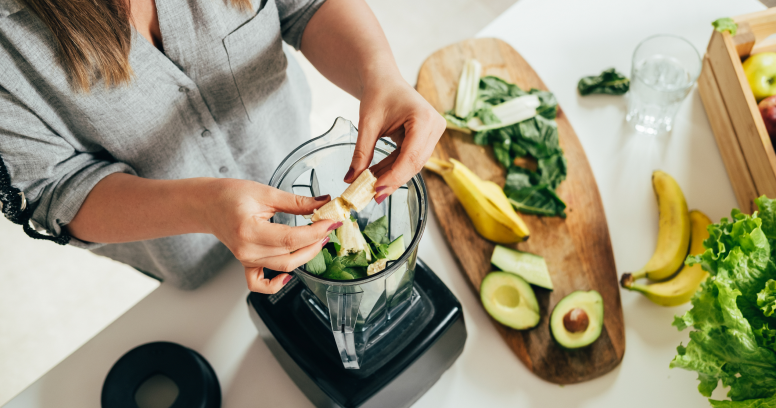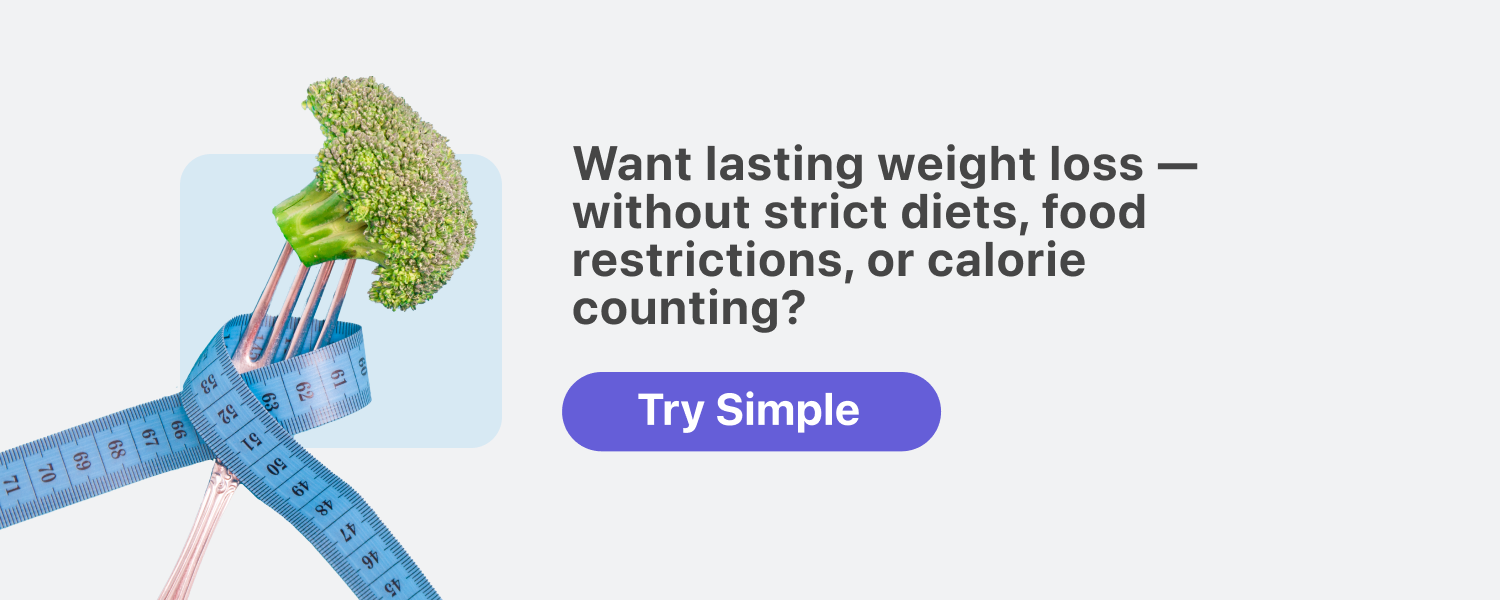Can you drink protein shakes during intermittent fasting?

Intermittent fasting may be part of your quest for peak fitness. Maybe you’re focused on exercising and eating for performance, which means getting plenty of protein. Or, maybe you’ve heard that protein is important, and protein shakes are an easy way to eat more. (Heck, maybe you just had dental surgery and can’t chew kale or steak yet — so you’re blending up protein powder with fruits and veggies for dinner instead.)

Whatever your reasons, you may be wondering, “Can I still drink protein shakes while intermittent fasting?”
The short answer is yes — if you drink your shake during your eating window.
Before we learn about protein shakes, check out our intermittent fasting for beginners guide if you need a refresher on all things fasting. And if you’re brand new to intermittent fasting, take our Simple quiz, and we can help you figure out the best plan for your unique body, preferences, and lifestyle.
Now, if your intermittent fasting knowledge is sound, settle in, and let’s chat about where protein shakes fit.
Key takeaways:
- Drinking a protein shake will break your fast, so it’s best to consume it during your designated eating window.
- Your activity level and the intensity of your workouts play a role in determining when it’s best to have your protein shake during your eating window.
- Consuming protein is essential when fasting for weight loss. It helps maintain lean body mass and can help you feel full longer, potentially reducing overall calorie intake.
- While you don’t necessarily need a protein shake, it can be a convenient way to supplement your diet, especially if you’re active or find it challenging to meet your protein needs through whole foods.
Do protein shakes break your fast?
Yes, consuming a protein shake will break a fast.
Save any high-protein foods — like other foods and calorie-containing drinks — for your eating window. But during that eating window, consume your protein shakes however you typically would.
You can track all your meals, including your protein shakes, in the Simple app – plus get feedback on your nutrition quality … and a high-five from our experts on your dedication to dietary protein! Take the Simple quiz to get started today.
FYI, tracking may not be for you if you have a history of eating disorders or disordered eating behaviors, so make sure to speak with your healthcare provider first.
(Wondering what breaks a fast, BTW? Check out our helpful guide.)

How should you time your protein shakes during your eating window?
Here’s the Big Answer. Are you ready?
It depends.
In particular, one key factor is how much exercise you’re doing. Many people who add protein shakes are looking for athletic performance and recovery.
How intense or lengthy is your exercise session?
- If your exercise is slow ‘n’ easy — like a leisurely paddle in the pool or a nice stroll with the dog in the park — then you can do it while fasting, if you like.
- If your exercise is more intense and lasts longer than about an hour — for instance, a grueling CrossFit session or a 50-mile bike ride with gnarly hills — you might want to put it into your eating window after at least one meal.
What level of performance do you need?
- If you’re a regular human who just enjoys getting active, you don’t have to worry about the precise details of your sports nutrition.
- If you’re a serious athlete, then you probably have to pay more attention to the finer points of nutrition, especially nutrient timing (i.e., making sure to eat the right things at the right times, in the right amounts).
In other words:
Depending on what you’re training for and how you’re training (for instance, a relaxed fasted morning walk is different from a hard boxing workout before your upcoming world championship fight), you might need to spend a little effort planning when to work out and when to eat. You may want to consult with a sports dietitian / nutritionist or physician to ensure you’re getting personalized recommendations.
Or, you may be free to just enjoy a flexible intermittent fasting schedule, letting protein intake timing take care of itself.
Other timing considerations
Some people like to break their fast with a protein shake, as it can be a bit lighter than a full meal. This can be another helpful option for timing your shake in your eating window.
On the other hand, some people like a protein shake as their last meal. Because protein helps you feel full (see below), a protein shake might help you sail through your intermittent fasting period more easily.
Either way, a simple protein shake isn’t necessarily intended to replace a meal, but if you throw other stuff into the blender — like fruits, vegetables, and healthy fats — you can get your full roster of nutrition.
Does protein timing really matter?
While evidence suggests that a higher-protein meal before a hard workout can improve your recovery, other evidence suggests that as long as you get enough protein during your eating window, it might not matter that much.[1–4]
Luckily, this is something you can test yourself if you like:
- Try a few weeks of fasted training (i.e., exercise during your intermittent fasting period) with a high-protein meal after you work out.
- Then, try a few weeks of training after at least one high-protein meal, with a second high-protein meal afterward. In other words, put your exercise somewhere in the middle of your eating window.
How do you feel and perform? Tracking changes in your body and exercise performance will often give you all the information you need!
Do you need to eat protein to lose weight?

If you’re fasting for weight loss, protein is vital.
Protein helps maintain lean body mass (think muscle, bone, and connective tissue). It also helps prevent the decline in resting metabolic rate that happens with a calorie deficit. In plain English, that means when you’re eating less overall, including plenty of protein can help keep your metabolism revving.[5]
Protein helps you feel full longer by affecting the hormones that control appetite. For instance, protein reduces your production of ghrelin — the hormone that tells your brain you’re hungry. It also increases the levels of hormones such as CCK that tell your mind you’re full.[5–10]
This all means that if you consume more protein, it can naturally help you eat less — and thus lose weight — without feeling hungry.
How much protein does your body need?
Once again, it depends. (Annoying answer, right?!)
The research is clear that we all need some protein for our bodies to work properly. For an average person, that’s a baseline of 0.8 grams of protein per kilogram of body mass per day (or 0.36 g/lb).
However, if you’re very active and/or older, you’ll likely feel and perform better with more protein.[11–16]
- More physical activity means more need for repair and recovery, which is one of protein’s main jobs.
- Older people don’t absorb protein as well, but they still need it, so they need to eat more to compensate.
That means more protein — for some people, up to 2 g/kg (or about a gram of protein per pound of body weight per day). For many folks, that’s tricky to get just from regular foods.
Before increasing your protein intake through food or supplements, make sure you speak with your healthcare provider to ensure it’s the right thing for you.
Wondering what the numbers mean in real-life foods?
Try tracking your food intake, including your protein shakes, in your Simple app. You’ll get a personalized protein recommendation and ideas on how to reach that intake goal.
Do you need a protein shake?
No. But it might be handy to have if your protein needs are higher and you can’t always meet them with “real food.”
Of course, start by building a menu from high-protein foods like:
- lean beef and pork
- poultry (like chicken, turkey, or duck)
- fish and seafood
- eggs
- low-fat, high-protein dairy (like cottage cheese or Greek yogurt)
- beans and legumes
- tofu, tempeh, and other soy products
Foods like nuts, seeds, and many whole grains also have some protein, but not a lot when you compare it to the likes of chicken, lean beef, tofu, and fish. (If all this talk of figuring out protein intake has you feeling a little overwhelmed, why not try our Simple quiz and let us take the load off your shoulders? You’ll get insights and feedback on your protein intake — along with other helpful things — by logging your food in your Simple app.)
However, if you don’t eat many of these foods, getting enough protein can be tricky.
Here’s where a protein shake can shine. It’s convenient, portable, shelf-stable, travel-friendly, and versatile.
- There are many types of protein powders available, including whey and casein (dairy-based), egg white, and vegetarian blends like pea, soy, rice, and hemp proteins.
- You can blend lots of things into your protein shake — fruits, oats, nut butters, fiber, yes, even veggies!
- When you’re traveling, a shaker cup and some protein powder can save you (for example) from enduring an expensive but disappointing airport meal or skipping a meal entirely, which deprives your body of good nutrition.
How to pick your protein powder
Here’s a quick list of tips.
- If you’re dairy intolerant, try a vegan option or keep an eye out for any usual symptoms if you opt for a whey- or casein-based shake.
- If you’re egg intolerant, avoid egg protein.
- If you’re a plant-based eater, look for vegan and vegetarian blends.
- Read labels to look for any additives you might not want, like artificial flavors, sugar, and other supplements (like caffeine).
If possible, try a small packet first to see if you like the taste.

- Schoenfeld BJ, Aragon A, Wilborn C, Urbina SL, Hayward SE, Krieger J. Pre- versus post-exercise protein intake has similar effects on muscular adaptations. PeerJ. 2017 Jan 3;5:e2825.
- Kerksick CM, Arent S, Schoenfeld BJ, Stout JR, Campbell B, Wilborn CD, et al. International society of sports nutrition position stand: Nutrient timing. J Int Soc Sports Nutr. 2017 Aug 29;14:33.
- Aragon AA, Schoenfeld BJ. Nutrient timing revisited: Is there a post-exercise anabolic window? J Int Soc Sports Nutr. 2013 Jan 29;10(1):5.
- Jäger R, Kerksick CM, Campbell BI, Cribb PJ, Wells SD, Skwiat TM, et al. International Society of Sports Nutrition position stand: Protein and exercise. J Int Soc Sports Nutr. 2017 Jun 20;14:20.
- Drummen M, Tischmann L, Gatta-Cherifi B, Adam T, Westerterp-Plantenga M. Dietary protein and energy balance in relation to obesity and co-morbidities. Front Endocrinol . 2018 Aug 6;9:443.
- Leidy HJ, Clifton PM, Astrup A, Wycherley TP, Westerterp-Plantenga MS, Luscombe-Marsh ND, et al. The role of protein in weight loss and maintenance. Am J Clin Nutr. 2015 Jun;101(6):1320S – 1329S.
- Westerterp-Plantenga MS, Lemmens SG, Westerterp KR. Dietary protein – its role in satiety, energetics, weight loss and health. Br J Nutr. 2012 Aug;108 Suppl 2(S2):S105–12.
- Morell P, Fiszman S. Revisiting the role of protein-induced satiation and satiety. Food Hydrocoll. 2017 Jul 1;68:199–210.
- Moon J, Koh G. Clinical evidence and mechanisms of high-protein diet-induced weight loss. J Obes Metab Syndr. 2020 Sep 30;29(3):166–73.
- de Carvalho KMB, Pizato N, Botelho PB, Dutra ES, Gonçalves VSS. Dietary protein and appetite sensations in individuals with overweight and obesity: A systematic review. Eur J Nutr. 2020 Sep;59(6):2317–32.
- Moore DR. Protein requirements for master athletes: Just older versions of their younger selves. Sports Med. 2021 Sep;51(Suppl 1):13–30.
- Hector AJ, Phillips SM. Protein recommendations for weight loss in elite athletes: A focus on body composition and performance. Int J Sport Nutr Exerc Metab. 2018 Mar 1;28(2):170–7.
- Witard OC, Garthe I, Phillips SM. Dietary protein for training adaptation and body composition manipulation in track and field athletes. Int J Sport Nutr Exerc Metab. 2019 Mar 1;29(2):165–74.
- Moore DR, Sygo J, Morton JP. Fuelling the female athlete: Carbohydrate and protein recommendations. EJSS . 2022 May;22(5):684–96.
- Mercer D, Convit L, Condo D, Carr AJ, Hamilton DL, Slater G, et al. Protein requirements of pre-menopausal female athletes: Systematic literature review. Nutrients. 2020 Nov 16;12(11).
- Helms ER, Zinn C, Rowlands DS, Brown SR. A systematic review of dietary protein during caloric restriction in resistance trained lean athletes: A case for higher intakes. Int J Sport Nutr Exerc Metab. 2014 Apr;24(2):127–38.
